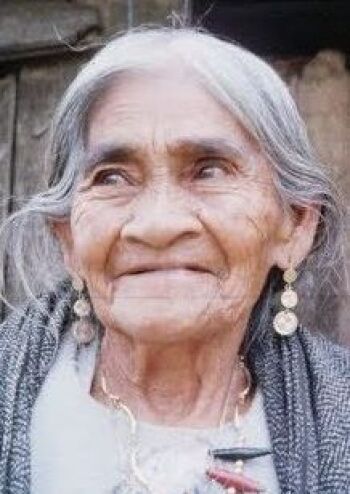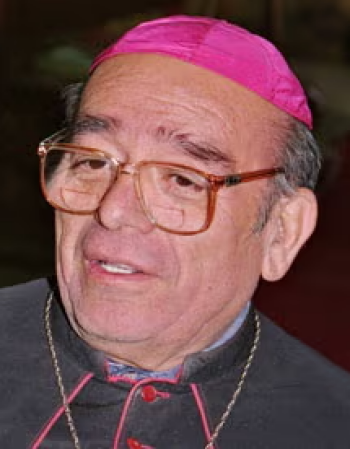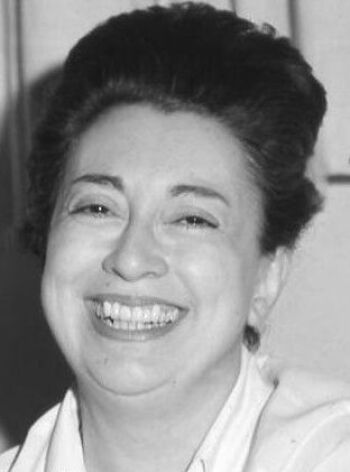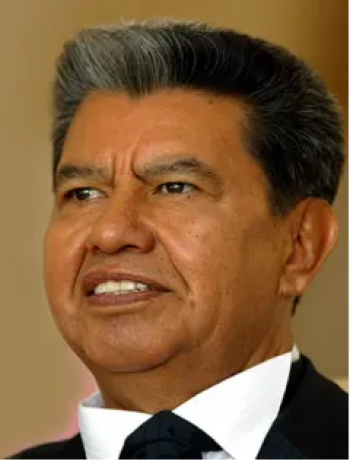Religion: Religious Leaders Post-1900
María Sabina (1894-1985)

Religion and Branch: Shamanism (Mazatec Tradition)
Title: Shaman
María Sabina was an indigenous Mazatec healer and shaman from the Sierra Mazateca in Oaxaca, Mexico. She gained international fame in the mid-20th century for her ceremonies using psilocybin mushrooms, also known as magic mushrooms.
Sabina's ceremonies, which were deeply rooted in Mazatec tradition and spirituality, attracted the attention of Westerners, especially after visits by figures such as ethnobotanist R. Gordon Wasson, who published an article on his experiences with Sabina in Life magazine in 1957. This publication is often credited with introducing psilocybin and the concept of the magic mushroom to the Western world.
Despite her significance in popularizing psilocybin in the West, Sabina lamented the commercialization and misuse of the sacred traditions of her people. She believed that the mushrooms had spiritual power, meant for healing and sacred ceremonies, not for recreational use.
Samuel Ruiz García (1924-2011)

Religion and Branch: Christianity (Catholicism)
Title: Bishop
Samuel Ruiz García was a prominent Roman Catholic bishop in Mexico known for his advocacy for the rights of indigenous peoples. He was ordained as a priest in 1949 and served as the bishop of the Diocese of San Cristóbal de las Casas in Chiapas from 1959 to 1999.
Bishop Ruiz, influenced by the Second Vatican Council and Liberation Theology, focused on the poor and marginalized in his diocese, especially the indigenous communities. He played a significant role in fostering a dialogue between the Zapatista Army of National Liberation (EZLN) and the Mexican government, seeking peaceful solutions during the Chiapas conflict in the 1990s.
Throughout his tenure, Ruiz faced criticism from both conservative elements within the church and the political establishment. However, he remained steadfast in his commitment to social justice and the rights of the indigenous peoples of Mexico.
Rosario Castellanos (1925-1974)

Religion and Branch: Christianity (Catholicism)
Title: Writer
Rosario Castellanos was a renowned Mexican poet, essayist, and novelist. While she is not primarily known for her religious contributions, her works often touched upon the complex intersections of gender, indigenous rights, and religion in Mexican society.
Castellanos was deeply influenced by her experiences in the state of Chiapas, where she witnessed firsthand the socio-religious dynamics between the indigenous Maya communities and the Catholic Church. Her novel The Book of Lamentations is a reflection of these dynamics, presenting a fictionalized account of a Tzotzil indigenous uprising against the local elites and the Catholic Church. Through her writings, Castellanos provided a critical lens on the ways religion, especially Catholicism, intersected with power structures and indigenous identity in Mexico.
Samuel Joaquín Flores (1937-2014)

Religion and Branch: Protestant Christianity
Title: Religious Leader
Samuel Joaquín Flores was an influential religious leader in Mexico, particularly known for his leadership of The Light of the World Church, a Christian denomination founded in Mexico in 1926 by his father, Eusebio Joaquín González.
Upon the passing of his father in 1964, Flores assumed leadership of the church. Under his direction, the church experienced significant growth both within Mexico and internationally.
Flores's tenure as leader wasn't without controversy, as he faced allegations of abuse, which he and the church vehemently denied. Nevertheless, he remained a central figure in the church until his death in 2014, and his influence is credited with expanding the church's reach and making it one of the fastest-growing religious movements in Mexico.
Copyright © 1993—2025 World Trade Press. All rights reserved.

 Mexico
Mexico